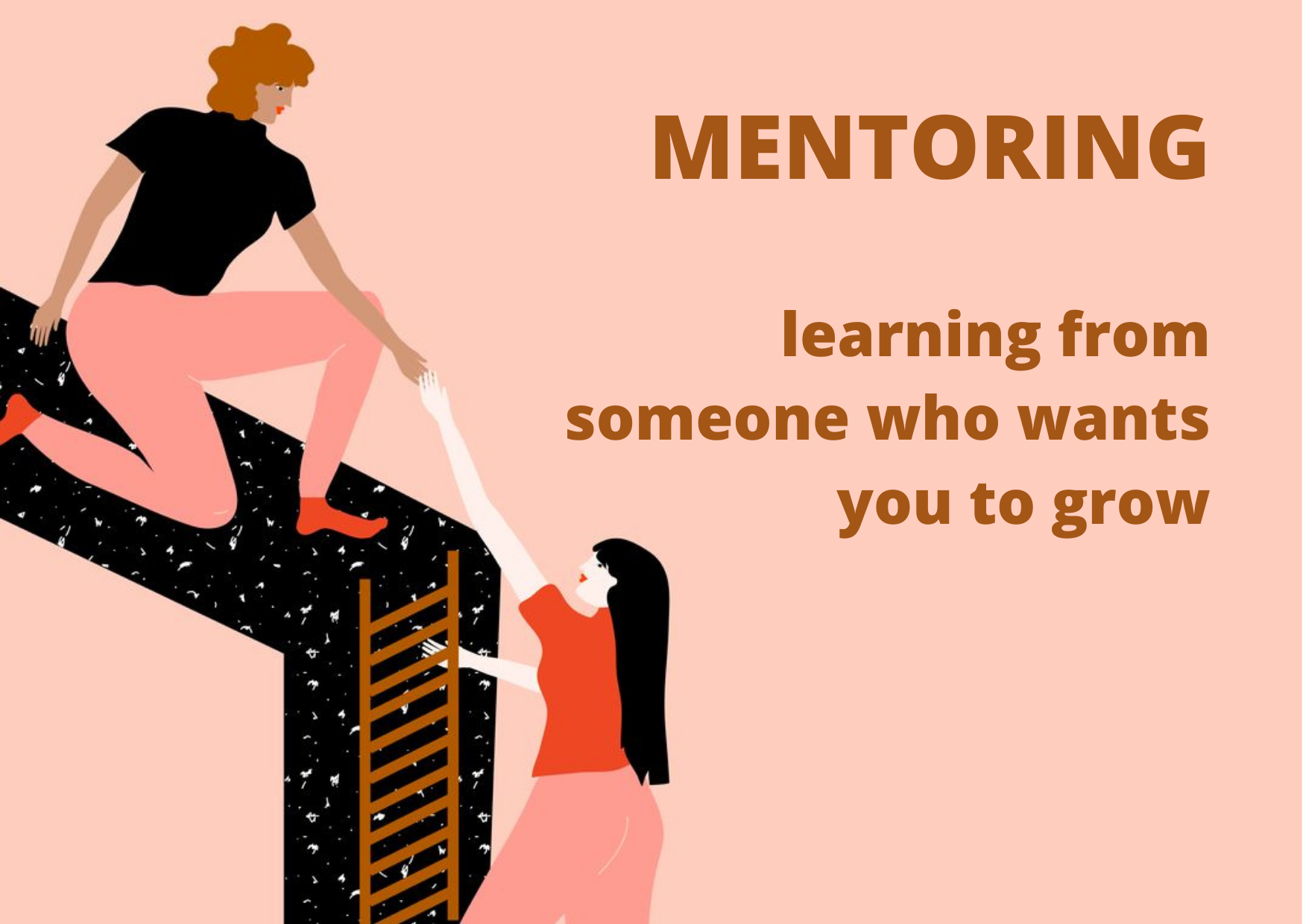THE IMPORTANCE OF MENTORING
All throughout life we lean on others to give us advice, point us in the right direction, to give us a new perspective and outlook in life. Basically to help us do better and be better in school, at our jobs and even personal lives. It starts with our parents, then teachers, later coaches and even friends. In childhood and early adulthood we rely so heavily on our community, the people around us to help us grow. But that slows down in our twenties, since there’s this feeling of “you should have it figured out by now”. But anyone who has reached the 20 year mark knows that this couldn’t be farther from the truth. Especially today when the world around us is changing at such a fast pace, there are new advances every day, and so our skills have to keep up. So constantly learning, developing new skills, adapting your methods has become necessary. Up to 85 percent of the jobs that today’s college students will have in 11 years haven’t even been invented yet. So let go of the thought that your education ends with university and that everything you’ve managed to learn by your twenties is all that you’ll ever know. You can learn a new skill, change careers or get a fresh view on life at any point in time. Because, to learn is to grow. And growing is the point of life. And it’s never too late (here’s a little more inspiration: an 87-year-old grandmother from Sri Lanka has become the oldest person to earn a master’s degree at this university in Canada).
Here comes the importance of mentoring – just like we had parents and teachers to turn to growing up, having mentors all through life is essential for our development. Don’t believe me? Maybe you’ll believe Oprah: “A mentor is someone who allows you to see the higher part of yourself when sometimes it becomes hidden to your own view. I think mentors are important and I don’t think anybody makes it in the world without some form of mentorship. Nobody makes it alone. Nobody has made it alone. And we are all mentors to people even when we don’t know it.” (Source: An interview with Oprah Winfrey on WCVB-TV 5 News CityLine (Boston, January 13, 2002).
So what is a mentor?
A mentor is a person who can support, advise and guide you. And mentoring is the act or process of helping and guiding another person to support their personal development.
“A mentor is someone who sees more talent and ability within you than you see in yourself, and helps bring it out of you.” — Bob Proctor
This quote highlights the essence of a good mentor: somebody that does not tell you what to do, but helps you figure it out for yourself.
To put it in points, having a mentor is so valuable, because:
- Mentors support growth and offer encouragement. They encourage and enable another person’s professional or personal development.
- Mentors serve as a source of knowledge and have relevant experience. They can provide specific insights and information that enable the mentee’s success.
- Mentors can help set goals and maintain accountability. By tracking progress, the mentor helps the mentee stay focused and on track towards completing them.
- Mentors help make connections and can become a trusted ally. Trust represents a core element of mentoring relationships. Trusting that the mentor has the mentee’s best interest in mind and the mentee respecting the privacy of the given information and following through the goals, establishes trust. When there’s trust the mentor can help build their mentee’s professional network, bring them in their circle and connect them to potential opportunities.
- Mentors are a free resource. Mentors offer to serve this role because they genuinely want to help the other individual grow and establish a more authentic and personal connection, which opens up mentorship for all types of people, without restricting this resource to only those who can afford it.
- Mentoring is a two way street and also benefits the mentor.
- Being a mentor strengthens your own knowledge. While the purpose is to help the mentee grow professionally, sharing this knowledge reinforces it within yourself. You may teach them skills you no longer use regularly, so this practice can help you rebuild or strengthen them.
- Being a mentor expands your network and can help you receive recognition. Your mentee may have relevant or interesting connections to share with you, leading to new opportunities. If your mentee finds significant success, it can demonstrate your value to others and again help lead you to more career opportunities.
- Being a mentor serves as a learning opportunity. Your interactions with a mentee offer numerous opportunities to practice and build interpersonal skills, such as communication, active listening, empathy and patience. Being a mentor also boosts confidence in your skills and abilities. You can gain leadership skills and even gain new perspectives, ultimately helping devise more innovative or creative solutions at your own work.
- Being a mentor provides a sense of fulfillment. Knowing that you made a positive impact on someone’s life or career can make you feel good. If you received mentorship early in your career, serving as one can offer an opportunity to pay it forward. And one day, you may serve as inspiration for your mentee to do the same for someone else.
So far we talked a lot about the importance of mentors and how they can significantly impact your personal and career development. But there are also other roles, other types of relationships that are essential and that I would like to briefly mention.
According to Stacey Flowers’ TED Talk, “The 5 People You Need in Life to be Happy”, in order to be happy you need to connect with five key people: a cheerleader, a mentor, a coach, a friend and a peer.
- Cheerleader – to believe in you when you struggle to believe in yourself.
- Mentor – to point you in the right direction when you’re feeling lost.
- Coach – to take you out of your comfort zone so you can maximize your potential and make things happen.
- Friend – to hear out your dreams and deepest desires.
- Peer – to keep you focused on the task at hand.
Now, these relationships and roles can often overlap – meaning the mentor that we described above, can become your lifelong friend, or can even be your peer, because there is no rule that your mentor needs to be older than you.
No matter how you “categorize” them, it is so important to surround yourself with supportive friends and family, and to find a mentor that can help guide you through obstacles. Relationships play such an important role in determining your happiness and your success.
And while it’s important to have support around you, it is equally worth remembering that perhaps the greatest gift is not to receive advice, but to support someone else, too. In the words of Maya Angelou, ‘be a rainbow in someone else’s cloud’, for that is so important.





